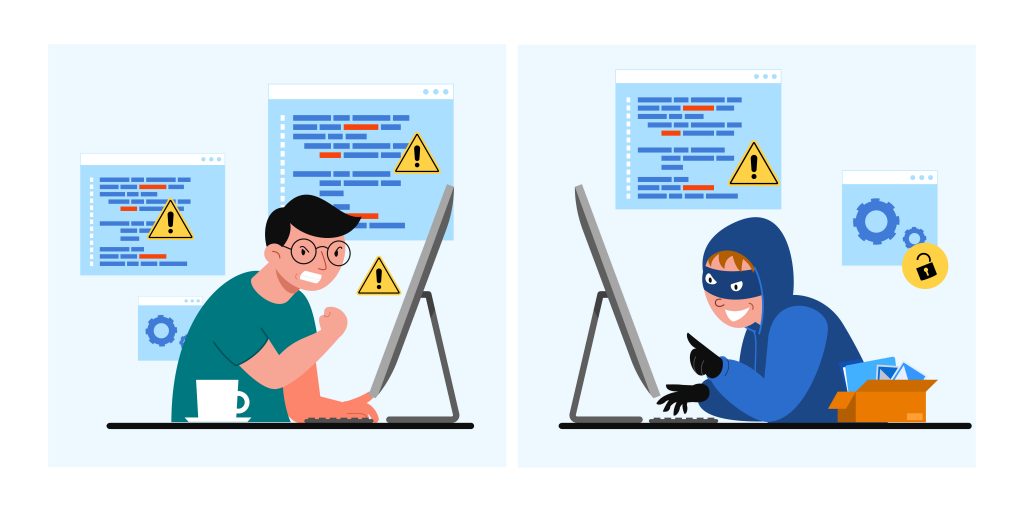Five Different PPC Frauds That Can Affect Your PPC Campaign

Ad fraud is an inevitable problem prevailing in the world of digital advertising at an increasing rate. As an advertiser, whether you are spending $100 or $100000 on PPC campaigns, you will end up being on the receiving end of the devastating effects it can have on the market budgets, ROAS and campaign data. Click fraud is a highly known form of digital fraud that is carried out by fraudulent publishers and competitors and many organizations are seeking solutions to slowly put a stop to it. However, you should know that there are multiple types of Ad frauds that particularly target PPC campaigning. The following are the most happening PPC frauds.
Type 1 – Bad Bots
40% of all the traffic on the internet, in general, is caused by bots. However, advertisers need to be attentive for the bad bots. They appear as real users and carry out click frauds by mimicking real human workflows across the web apps. This makes it even harder to detect and prevent them. Bad bots are an extremely malevolent type of PPC fraud that can perform repetitive tasks, such as generating fake clicks at an alarming rate. In this way, a massive number of fraudulent clicks to PPC campaigns can be produced and can drain budgets quickly. Bad bots can not only deplete your PPC budgets but also make your PPC campaigns expensive and eventually it can be challenging to run profitable campaigns. Bad bots can also steal data, hack a user’s account and submit junk data through online sites.
Type 2- Click Farms
Though click farms may vary in sophistication, the idea behind it is simple. It’s basically a group of people in a room whose job is to sit in front of computers and/or phones. They are usually sparsely paid to manually click on online white label PPC ads, aiming to steeply increase clickthrough rates and drain the PPC ad budget. Although they are unsophisticated operations, click farms are prevalent in countries such as China, India and the Philippines where there’s barely any strict regulations on ad frauds. Thus, making it even harder to prevent the illicit operations of click farm on white label PPC management.
Type 3 – Data Center Traffic
Data centers and hosting providers are mediums that are useful for fraudsters. These mediums provide the needed infrastructure to carry out fraud schemes, such as fast, high-bandwidth networks, obscurity and on-demand, elastic hardware. Fraudsters use data centers as proxy/anonymizer VPN to conceal their operations or/and location, and launch malware and automated software from the systems. Fraudsters have been exposed due to several fraudulent operations that include – using multiple servers in cloud data centers to run emulators and browsers, generating immense mobile and desktop traffic. This form of digital fraudulence can have a negative impact on your PPC competitor research.
Type 4- Click Spamming
Click spamming is a type of advertisement fraud that is done by fraudsters with the intention to capture PPC budgets by overloading Ads with fraudulent clicks. This happens when fraudsters click for real users who haven’t actually interacted with the advertisement. Click fraudsters occur when users open their web page or an app on their phone where fraudsters are already operating to stimulate a large number of fake clicks. From here, fraudsters can:
- Generate fake clicks in the background.
- Send clicks to invisible ads that are running in the background.
- Send clicks from a user’s device to a random vendor and receive payouts for ads.
The repercussions of click spamming can be terminal on white label PPC management.
Type 5 – Geomasking
Geomasking is a prevailing technique used by fraudsters to change or displace the location of the fake clicks generated by them in an unpredictable way. The locations are changed such that the fraudster cannot be tracked as his location will not have any pattern. This technique mainly helps fraudsters to maintain their confidentiality. Advertisers spend more or less on white label PPC campaigns depending on the value of a particular location. Fraudsters gain payouts for fraudulent clicks by spoofing IP addresses to mislead advertisers that clicks are more valuable than they are. In this way, geomasking can be disastrous for the white label PPC management.


